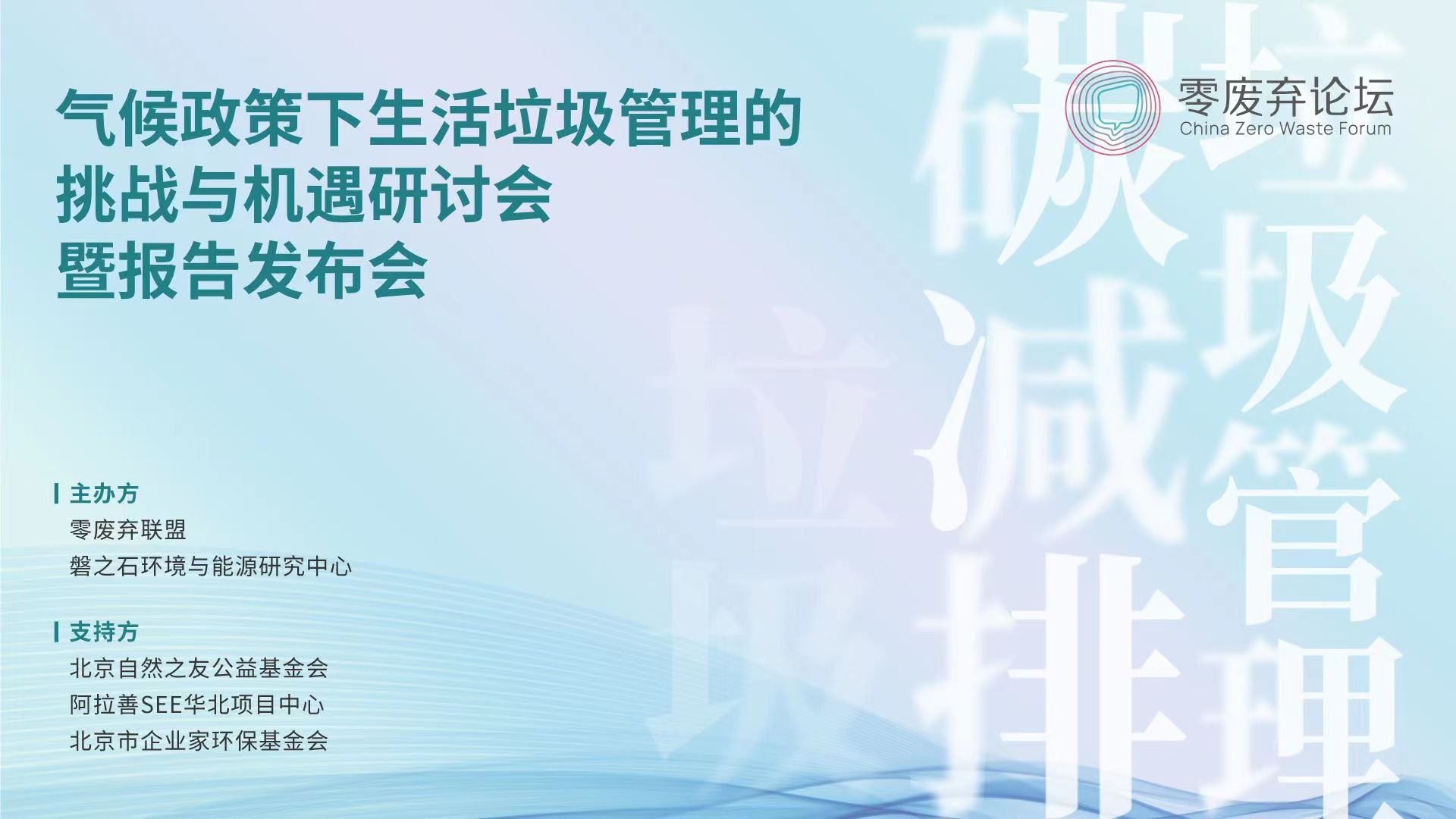

On June 16, 2022, Rock Environment and Energy Institute (REEI) and Zero Waste Network co-hosted the report release “Challenges and Opportunities of Municipal Solid Waste Management under Climate Policy”. The main purpose of the conference is to launch the report entitled “Opportunities for Sustainable Management of Municipal Solid Waste (MSW) in China under Climate Policy - Insights from the EU and Beyond" which was recently completed by REEI. The report focuses on two primary issues: the evolution of MSW management in the European Union and its relationship to carbon reduction, and the prospects for managing carbon emissions in China's MSW management sector under the carbon peaking and carbon neutrality targets. In this regard, the report offers effective policy recommendations for carbon reduction in China's MSW management.
China's low-carbon transition should also make a difference in MSW management. In this conference, Zhao Ang, Co-Director and Co-Founder of REEI, shared the core content of the report (How to achieve sustainable management of municipal solid waste in the "double carbon era"). The EU has achieved a 22% carbon reduction in solid waste disposal in 2019 compared to 1990 by increasing recycling, incineration, and reducing the proportion of landfills. However, incineration is the mainstream waste treatment technology in China, and the power required for the incineration process is closely related to the carbon emission intensity of the current power grid. As the carbon intensity of the domestic grid decreases, and as methane recovery from landfills becomes more widespread in more and more cities and regions, the carbon reduction effect of incineration will become increasingly limited. A study on life-cycle assessment of solid waste GHG emissions by EPA showed that in most cases, GHG reductions from source reduction are even higher than those from recycling.
Therefore, Zhao Ang summarized the policy recommendations of the report. They are as follows,
1. Macro policy target: The five-year plan (2026-2030) should set a specific target of "source reduction".
2. For enterprises: Implement a circular economy strategy through product standards
3. For consumers: product disclosure + responsibility and action
4. For MSW incineration: raise the threshold for subsidies
5. In line with the methane reduction strategy, require methane collection and utilization facilities for both old and new MSW landfills
In addition, the conference invited three guest speakers, Zhang Xuehua, researcher of Nanjing University (Lishui) Eco-environmental Research Institute, Yan Lei, head of the Carbon Emission Reduction Working Group of All-China Environment Federation, and Li Jiacheng of Wuhu Environmental Protection Volunteers Association, to give lectures on the carbon neutral potential of community food waste compost, the contribution of disposable plastic substitutes to greenhouse gas emission reduction, and a comprehensive understanding of waste treatment (in the direction of incineration).
The conference keeps the entirety of the live material, but the language is Chinese. You can view it on the Chinese page.
Please feel free to contact us if you're interested in the conference's material or the project's results. Additionally, we look forward to further conversations on the MSW management issues, collaborating to advance the objective of carbon reduction in the solid waste industry.




